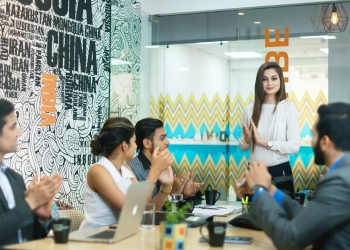Are you ready to discover a robust learning methodology beyond traditional classroom approaches?
Prepare for the fascinating world of the Experiential Learning Cycle, where knowledge is gained through hands-on experiences, reflection, and active experimentation.
Get ready for a transformative journey of growth and discovery!
Introducing the Experiential Learning Cycle:
The Experiential Learning Cycle is a dynamic process that allows individuals to learn by doing, reflecting, and applying new knowledge.
Developed by educational theorist David A. Kolb, this approach believes learners gain a deeper understanding and develop essential skills through active engagement.
Stage 1: Experience (Concrete Experience):
The cycle begins with a hands-on experience or encounter with a real-life situation.
This could involve simulations, projects, or venturing to gain firsthand knowledge. Immersing yourself in the experience sets the foundation for meaningful learning.
Stage 2: Reflect (Reflective Observation):
After the experience, take a step back and reflect on what happened.
This introspective phase allows you to analyze and process the information you gathered.
Consider the emotions, thoughts, and insights that arose during the experience.
Reflection deepens understanding and opens up new perspectives.
Stage 3: Conceptualize (Abstract Conceptualization):
Next, transform your reflections into conceptual understanding.
Connect your experience to existing theories, concepts, or frameworks. Start making sense of the information, identifying patterns, and forming new insights.
Conceptualization helps you generalize your experience and extract valuable knowledge applicable to different contexts.
Stage 4: Apply (Active Experimentation):
With your newfound knowledge and insights, put theory into action!
Active experimentation involves applying what you’ve learned to new situations, taking risks, and testing different approaches.
This hands-on application allows you to refine your skills, explore alternatives, and understand the practical implications of your learning.
Rinse and Repeat: The Continuous Cycle of Growth:
The Experiential Learning Cycle is not a linear process; it’s a continuous loop that encourages ongoing growth and development.
Each completed cycle informs and enriches the next, building a solid foundation of knowledge and skills.
Multiple cycles deepen learning and contribute to mastery.
Beyond the Classroom:
The Experiential Learning Cycle is versatile and can be applied in various domains.
It adapts to different learning styles and contexts, from outdoor education programs and internships to creative arts, business simulations, and scientific experiments.
The Power of Experiential Learning:
The Experiential Learning Cycle offers numerous benefits for personal and professional development. By actively engaging in experiences, reflecting, conceptualizing, and applying new knowledge, you:
- Develop critical thinking skills.
- Bridge the gap between theory and practice.
- Gain a deeper understanding of the subject matter.
- Foster creativity and innovation.
- Enhance problem-solving abilities.
- Cultivate self-awareness and emotional intelligence.
- Nurture a growth mindset.
Embark on Your Journey of Transformation:
Unleash the full potential of your learning experience by embracing the Experiential Learning Cycle.
Seek opportunities to learn by doing, reflect on your experiences, connect the dots, and apply your knowledge in real-world scenarios.
Embrace the cycle and watch your skills and understanding soar to new heights.
Remember, the Experiential Learning Cycle is a never-ending adventure of growth.
Embrace, explore, and let it empower you on your lifelong learning journey.




























































